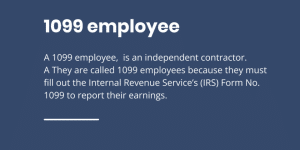Updated November 20, 2025
Understanding California Labor Code 1102.5
California Labor Code Section 1102.5 serves as a crucial legal framework designed to protect employees who report unlawful activities or refuse to engage in illegal practices within their workplace. This law is particularly significant in safeguarding whistleblowers from retaliation by their employers. In this article, we will explore the provisions of this law, its implications for employees, and the legal recourse available for those who face retaliation.
Overview of California Labor Code 1102.5
California Labor Code 1102.5 is a comprehensive statute that prohibits employers from retaliating against employees for disclosing information regarding violations of state or federal laws. The law encourages employees to report misconduct without fear of adverse consequences, thereby promoting a culture of transparency and accountability in the workplace.
Key Provisions
Protection Against Retaliation: The law explicitly states that employers cannot retaliate against employees for reporting suspected illegal activities to government agencies, law enforcement, or even internal supervisors who have the authority to address such issues.
Scope of Disclosure: Employees are protected when they disclose information that they reasonably believe reveals a violation of state or federal statutes or local regulations. This protection extends to both known and unknown violations.
Refusal to Participate: Employees are also safeguarded if they refuse to engage in activities that would violate laws or regulations. This means that an employee cannot be punished for standing up against illegal practices.
Family Member Protection: The law extends protections to employees who may face retaliation due to their family members engaging in protected activities under this statute.
The Importance of Whistleblower Protections
Whistleblower protections are vital for fostering a safe and ethical work environment. They empower employees to speak out against wrongdoing without the fear of losing their jobs or facing other forms of retaliation. This legal framework not only protects individual employees but also serves the broader public interest by encouraging the reporting of illegal activities.
Encouraging Ethical Practices
By providing robust protections, California Labor Code 1102.5 encourages employees to report unethical practices, such as fraud, safety violations, or discrimination. This, in turn, helps maintain a fair and just workplace, benefiting both employees and employers.
Legal Consequences for Employers
Employers who violate this law may face significant legal repercussions, including civil penalties of up to $10,000 for each instance of retaliation. This financial liability serves as a deterrent against retaliatory actions and reinforces the importance of compliance with whistleblower protections.
Recent Developments in Whistleblower Law
In recent years, there have been significant developments in the interpretation and enforcement of California Labor Code 1102.5. A landmark ruling by the California Supreme Court in People ex rel. Garcia-Brower v. Kolla’s, Inc. expanded the definition of "disclosure," providing even greater protections for whistleblowers.
Expanded Definition of Disclosure
The court ruled that an employee’s disclosure does not need to be the first report of misconduct for it to be protected. This means that even if the recipient of the report is already aware of the wrongdoing, the employee is still protected under the law. This ruling emphasizes the importance of encouraging employees to report misconduct without fear of being dismissed as redundant.
Shift in Burden of Proof
Another critical aspect of this ruling is the shift in the burden of proof. Previously, employees had to demonstrate that retaliation occurred due to their whistleblowing activities. Now, it is the employer’s responsibility to prove that any adverse action taken against an employee was not related to their protected disclosures. This change significantly strengthens the position of whistleblowers in legal proceedings.
Examples of Whistleblower Retaliation
Whistleblower retaliation can manifest in various forms, and understanding these examples can help employees recognize when their rights may have been violated.
Common Forms of Retaliation
- Termination: Firing an employee shortly after they report illegal activities is a clear example of retaliation.
- Demotion: Lowering an employee’s rank or responsibilities can also be considered retaliatory action.
- Harassment: Subjecting the whistleblower to hostile work conditions or bullying can create a toxic environment.
- Exclusion: Isolating the employee from team activities or important meetings can be a subtle form of retaliation.
- Disciplinary Action: Unjust disciplinary measures taken against the whistleblower can further illustrate retaliatory behavior.
Proving Whistleblower Retaliation
To successfully prove retaliation under California Labor Code 1102.5, an employee must establish several key elements.
Elements of a Retaliation Claim
Engagement in Protected Activity: The employee must demonstrate that they engaged in a protected activity, such as reporting illegal conduct.
Adverse Employment Action: The employee must show that they suffered an adverse employment action, such as termination or demotion.
Causal Link: There must be a clear connection between the protected activity and the adverse action taken by the employer.
Gathering Evidence
Proving retaliation can be challenging, which is why it is essential for employees to gather evidence that supports their claims. This may include:
- Emails or memos that indicate the employer’s dissatisfaction with the whistleblower’s actions.
- Performance reviews that show a sudden decline in evaluations following the report.
- Witness statements from colleagues who can attest to the retaliatory behavior.
Legal Remedies for Whistleblower Retaliation
Employees who experience retaliation for whistleblowing have several legal remedies available to them under California law.
Available Remedies
Reinstatement: Employees may be entitled to return to their previous position if they were wrongfully terminated.
Back Pay: Compensation for lost wages during the period of wrongful termination or demotion can be sought.
Emotional Distress Damages: Employees may also claim damages for emotional distress caused by the retaliatory actions.
Punitive Damages: In some cases, punitive damages may be awarded to deter the employer from engaging in similar conduct in the future.
Attorney Fees: Employees who successfully prove their claims may be entitled to recover reasonable attorney fees, making legal representation more accessible.
Filing a Whistleblower Retaliation Claim
If you believe you have been retaliated against for whistleblowing, it is crucial to take action promptly.
Steps to Take
Document Everything: Keep detailed records of all incidents related to the retaliation, including dates, times, and descriptions of events.
Consult an Attorney: Seek legal advice from an attorney experienced in employment law to evaluate your case and discuss your options.
File a Complaint: Depending on the circumstances, you may need to file a complaint with the California Labor Commissioner or pursue a lawsuit against your employer.
Timelines for Filing
It is essential to be aware of the timelines for filing claims. Under California law, whistleblower retaliation claims must typically be filed within a specific period after the retaliatory action occurs. Delaying action can jeopardize your case.
Conclusion
California Labor Code 1102.5 plays a vital role in protecting employees who report illegal activities within their workplaces. By understanding the provisions of this law, employees can better navigate their rights and seek justice if they face retaliation. If you believe your rights have been violated, it is essential to consult with an experienced employment attorney who can guide you through the legal process and help you secure the compensation you deserve. Remember, you have the right to speak out against wrongdoing without fear of retaliation.
If you need employment litigation, call Setyan Law at (213)-618-3655. Free consultation.






